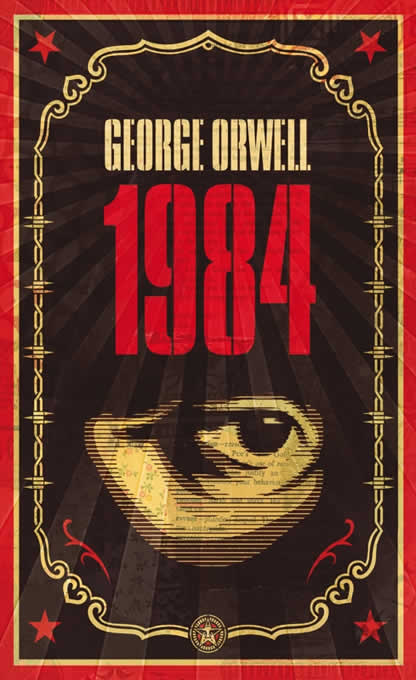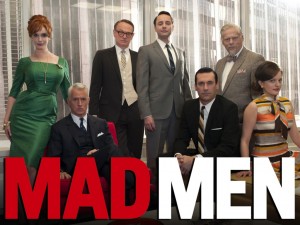Confused about all the terms flying around as a result of the Supreme Court’s ruling today? Here’s a roundup of 10 key words and terms.
Affordable Care Act
“One of the main goals of the Patient Protection and Affordable Care Act is to extend coverage to millions of Americans who can’t obtain insurance today. These are typically people with preexisting medical conditions or limited incomes whose employers don’t offer health benefits.”
“’Obamacare’ insurance exchanges: Let’s get going,” The Los Angeles Times, February 8, 2012
According to Investopedia, the Affordable Care Act, short for the Patient Protection and Affordable Care Act, is:
A federal statute signed into law in March 2010 as a part of the healthcare reform agenda of the Obama administration. Signed under the title of The Patient Protection and Affordable Care Act, the law included multiple provisions that would take effect over a matter of years, including the expansion of Medicaid eligibility, the establishment of health insurance exchanges and prohibiting health insurers from denying coverage due to pre-existing conditions.
Check out this guide from The Atlantic regarding which provisions of the ACA were approved by the Supreme Court today.
Commerce Clause
“Can the federal government require Americans to buy health insurance? Well, yesterday, a federal judge in Virginia said no, that that part of the health care overhaul law is unconstitutional. The legal argument hinges on the powers given to Congress under the Commerce Clause of the Constitution. The clause is a short one. It says that Congress has the power to regulate commerce with foreign nations and among the several states and with the Indian tribes.”
“Health Mandate Fight Hinges On Commerce Clause,” NPR, December 14, 2010
The Commerce Clause relates to the Patient Protection and Affordable Care Act in that “Congress claims authority from the Commerce Clause,” and therefore “is authorized to require citizens to purchase health insurance from the private market, known as the individual mandate.”
death panel
“Democrats are right that offering an on-demand counseling session is hardly the same as establishing a ‘death panel’ to determine which senior lives or dies. To equate the two, as Sarah Palin has done, is to utter, in Obama’s term, ‘outlandish rumors.’”
Amity Shlaes, “Death Panel Needed for Health-Debate Hypocrisy,” Bloomberg, August 10, 2009
A death panel is “a supposed committee responsible for allocating healthcare and promoting euthanasia to reduce costs.” In 2009 former Vice Presidential nominee Sarah Palin stated:
The America I know and love is not one in which my parents or my baby with Down syndrome will have to stand in front of Obama’s ‘death panel’ so his bureaucrats can decide, based on a subjective judgment of their ‘level of productivity in society,’ whether they are worthy of health care. Such a system is downright evil.
According to the Washington Post, Palin was referring to a provision “that would provide funds to physicians or other health care providers to help counsel patients on end of life planning issues such as how to create a living will or advanced directive.”
individual mandate
“If there were no individual mandate included in the legislation, this would create a situation where people would be likely to wait until they had a health problem diagnosed before they applied for insurance. That would cause premiums to increase and make coverage increasingly unattractive to people who are young and healthy.”
Brendan Borrell, “Individual mandate: A sticking point in the healthcare debate,” The Los Angeles Times, February 15, 2010
Individual mandate is “a requirement by law that certain persons purchase or otherwise obtain a good or service.” The Patient Protection and Affordable Care Act “imposes a health insurance mandate,” which would “fine citizens without insurance,” says the L.A. Times.
Medicaid
“Retirees who expect to end up on Medicaid, Mr. Kotlikoff says, might want to skip this. Medicaid, which is based on financial need, ‘will end up taking the additional money that comes in.’”
Jeff Opdyke, “How to Game Social Security,” The Wall Street Journal, August 27, 2010
Medicaid is “a program in the United States, jointly funded by the states and the federal government, that reimburses hospitals and physicians for providing care to qualifying people who cannot finance their own medical expenses.” Medicare is “a program under the U.S. Social Security Administration that reimburses hospitals and physicians for medical care provided to qualifying people over 65 years old.” See how Medicaid will be affected by today’s ruling.
Obamacare
“Democrats in Congress are upset that Republicans are using the term ‘Obamacare’ — the pejorative term for the Affordable Care Act — in taxpayer-funded congressional mass correspondence.”
“Super Committee Democrats Announce What They’ll Eventually Cave On,” The Huffington Post, October 26, 2011
Obamacare refers to reforms in the U.S. healthcare system proposed by the Obama administration. See Affordable Care Act.
preexisting condition
“I thought of Brown as the Obama administration announced this week that it would cut premiums for people with preexisting conditions who seek coverage under federal programs created as part of the healthcare reform law. The programs are intended to serve as a stopgap until 2014, when insurers will no longer be permitted to turn people away because of illness or a preexisting condition — that is, if the provision survives legal challenges.”
David Lazarus, “Falling through the cracks with a preexisting condition,” The Los Angeles Times, June 3, 2011
A preexisting condition is a “medical condition that occurred before a program of health benefits went into effect.”
Romneycare
“Santorum comes back and uses the word ‘Romneycare‘ and lists the flaws of Romney’s plan, calling it ‘top down, big government’. This is the best criticism of Romney’s Massachusetts healthcare package – which was very similar to the Obama reforms – that anyone has made so far.”
Richard Adams, “GOP presidential debate in Las Vegas – as it happened,” The Guardian, October 19, 2011
Romneycare refers to the Massachusetts health care reform law, which was “enacted in 2006” and “mandates that nearly every resident of Massachusetts obtain a state-government-regulated minimum level of healthcare insurance coverage and provides free health care insurance for residents earning less than 150% of the federal poverty level.” The health legislation was signed by Romney, who was governor at the time.
SCOTUS
“Some cameras-in-the-courts detractors say that’s why it’s useless to broadcast SCOTUS hearings live: Under this questioning, even for lawyers it’s often impossible to tell whose side the adversarial judges are really on until they rule.”
James Poniewozik, “The SCOTUS With the Mostus,” Time, December 1, 2000
SCOTUS is an acronym that stands for the Supreme Court of the United States. POTUS stands for the President of the United States, while FLOTUS is the First Lady of the United States.
socialized medicine
“Socialized medicine is a system in which the government owns the means of providing medicine. Britain is an example of socialized system, as, in America, is the Veterans Health Administration. In a socialized system, the government employs the doctors and nurses, builds and owns the hospitals, and bargains for and purchases the technology. I have literally never heard a proposal for converting America to a socialized system of medicine.”
Ezra Klein, “Health Reform for Beginners,” The Washington Post, June 9, 2009
Socialized medicine refers to “a government-regulated system for providing health care for all by means of subsidies derived from taxation.” Some examples of countries that practice socialized medicine are Australia, Canada, Finland, and the United Kingdom. Socialized medicine differs from single-payer health care, says Ezra Klein, in that:
[single-payer health care is] a system in which one institution purchases all, or in reality, most, of the care. But the payer does not own the doctors or the hospitals or the nurses or the MRI scanners. Medicare is an example of a mostly single-payer system, as is France. Both of these systems have private insurers to choose from, but the government is the dominant purchaser.
Canada has socialized medicine and a single-payer system (newsflash to those with moving plans).


